Reason to Believe 1
Chris Knepp
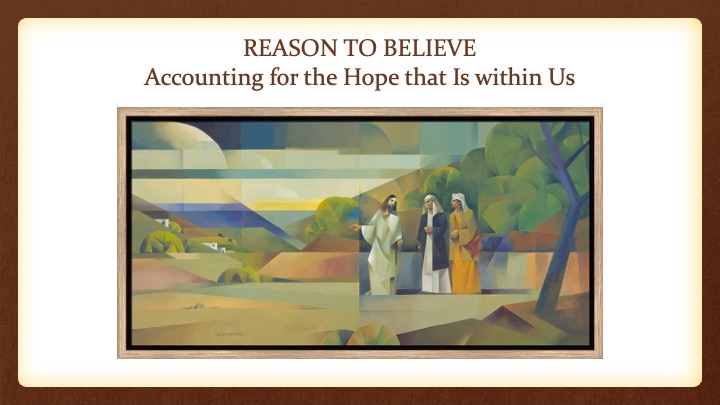
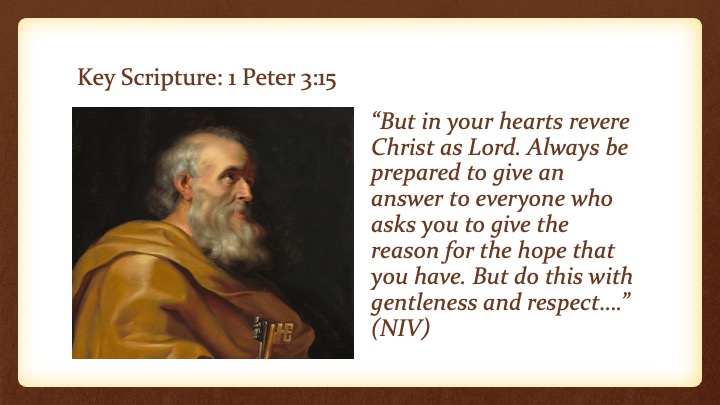
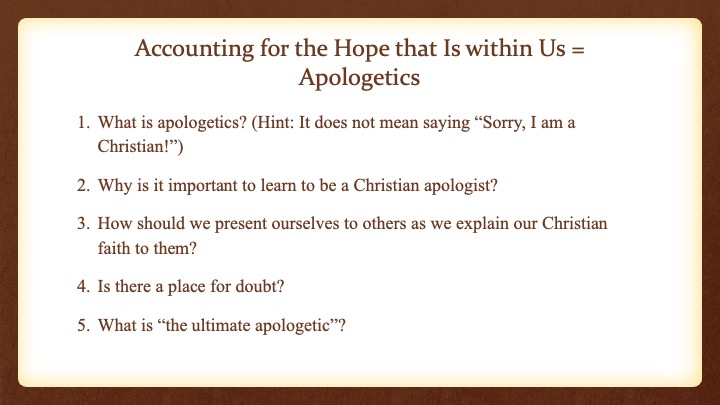
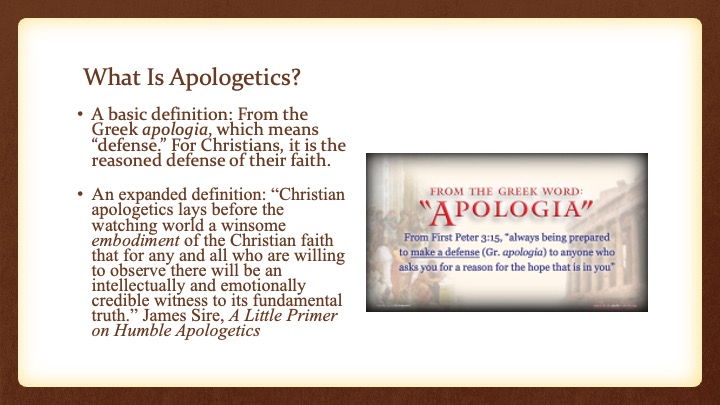

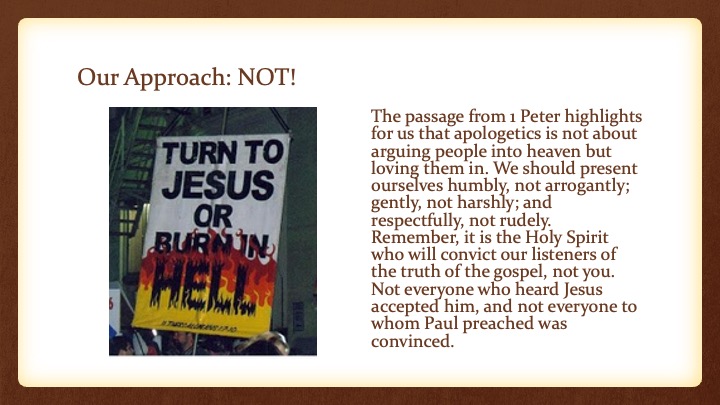
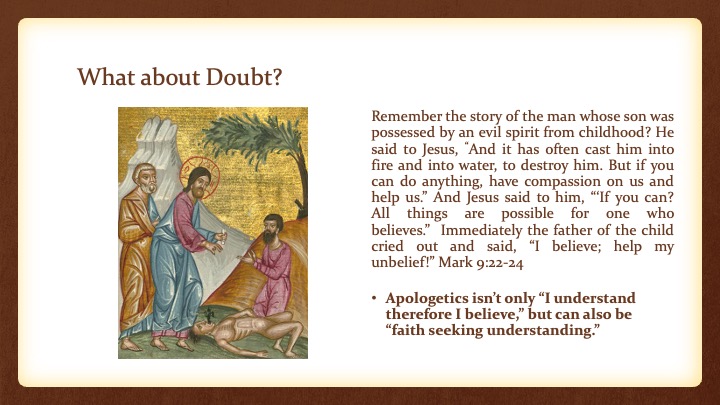
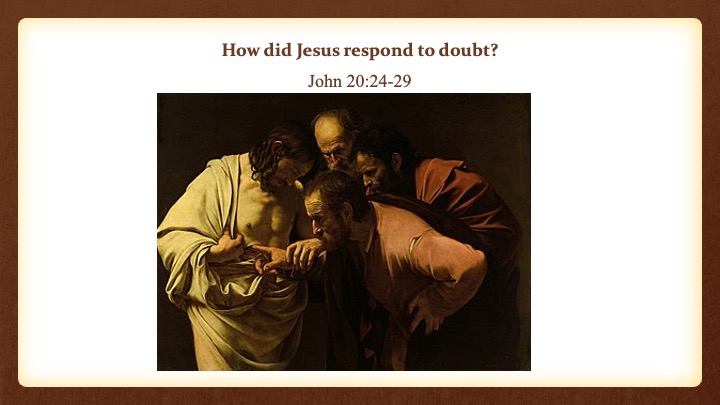
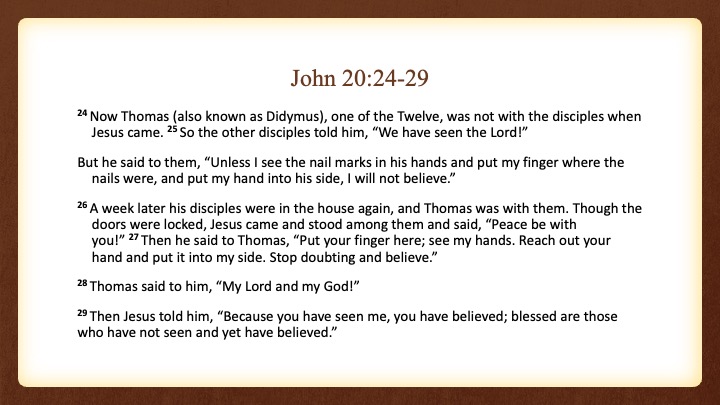
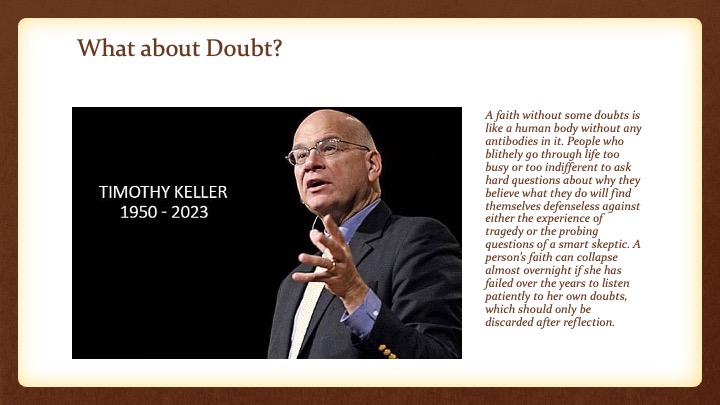



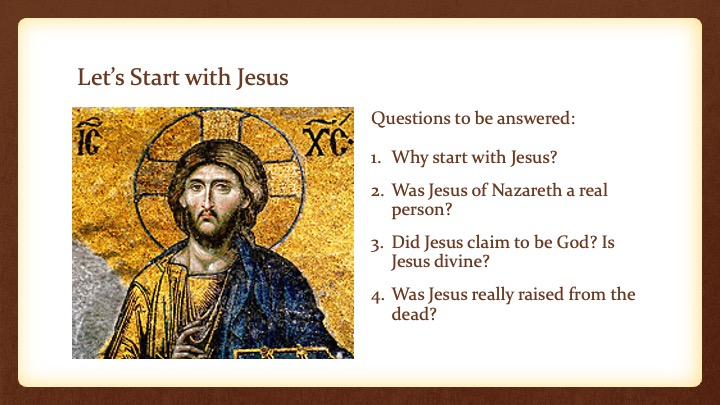
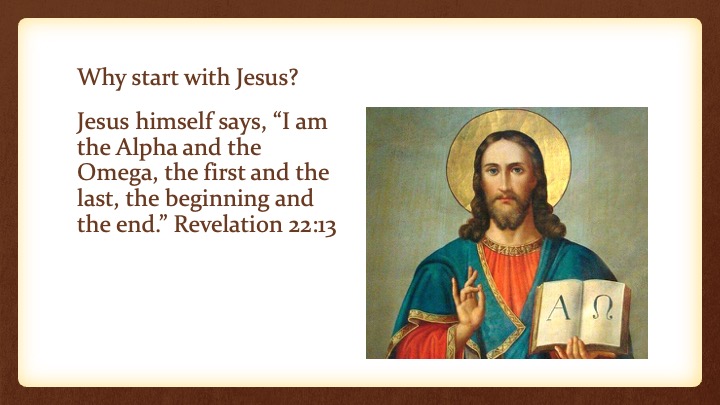
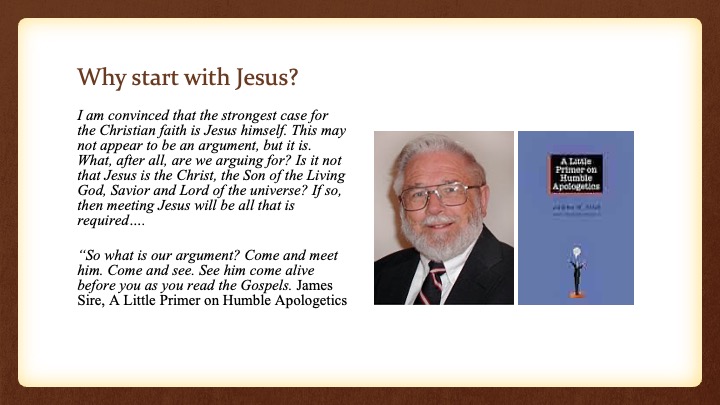
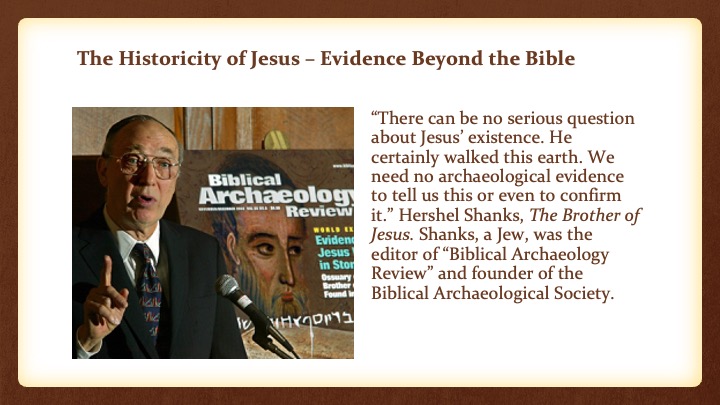
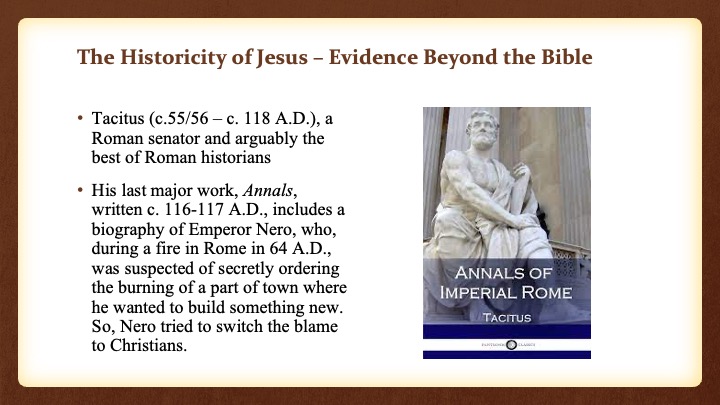
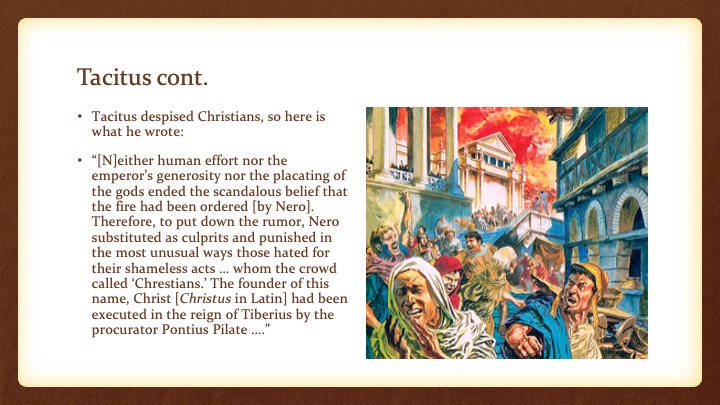
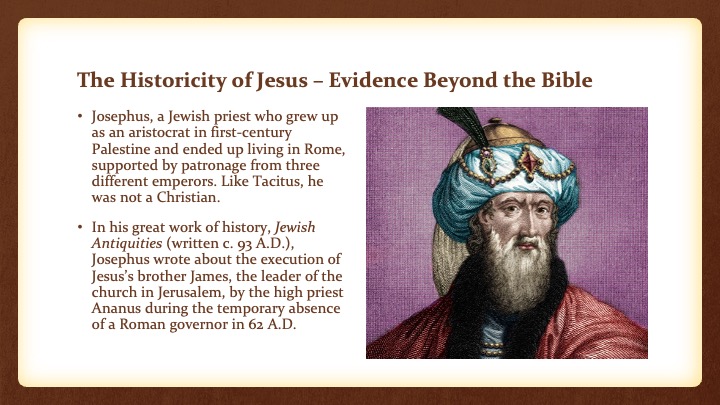
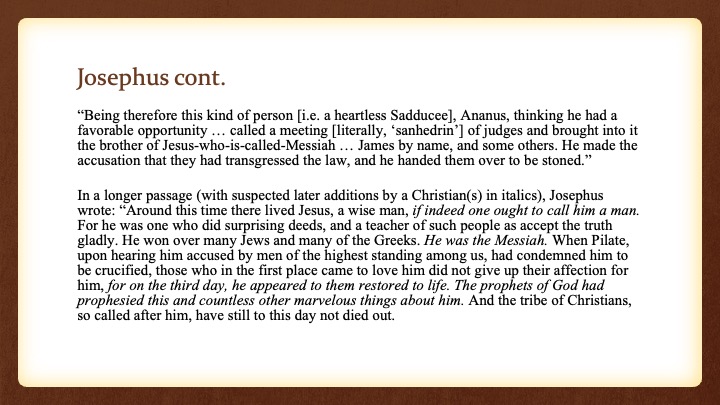
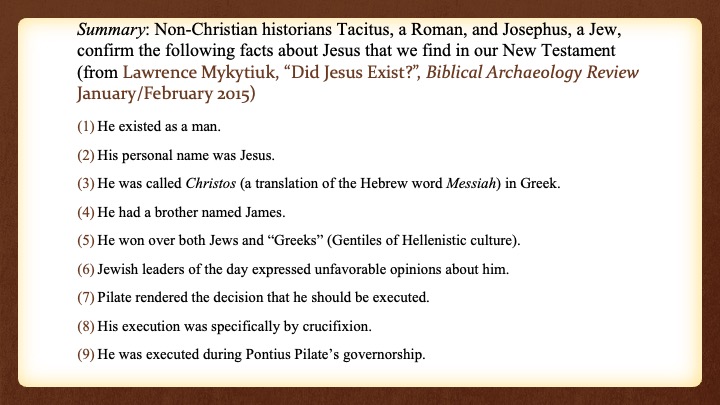
Reason to Believe 1
Links
< Home Page > < Reason to Believe Menu >
Reason to Believe 1 – the Text
REASON TO BELIEVE
Accounting for the Hope that Is within Us
Key Scripture: 1 Peter 3:15
“But in your hearts revere Christ as Lord. Always be prepared to give an answer to everyone who asks you to give the reason for the hope that you have. But do this with gentleness and respect….” (NIV)
Accounting for the Hope that Is within Us = Apologetics
- What is apologetics? (Hint: It does not mean saying “Sorry, I am a Christian!”)
- Why is it important to learn to be a Christian apologist?
- How should we present ourselves to others as we explain our Christian faith to them?
- Is there a place for doubt?
- What is “the ultimate apologetic”?
What Is Apologetics?
• A basic definition: From the Greek apologia, which means “defense.” For Christians, it is the reasoned defense of their faith.
• An expanded definition: “Christian apologetics lays before the watching world a winsome embodiment of the Christian faith that for any and all who are willing to observe there will be an intellectually and emotionally credible witness to its fundamental truth.” James Sire, A Little Primer on Humble Apologetics
It is from the Greek word “APOLOGIA”
FROM FIRST PETER 3:15 “always being prepared to make a defenae (Gr. Apologia) to anyone who asks for a reason for the hope that is in you.
Reason to Believe
Importance of Apologetics
Being able to give a reasoned (logical) explanation of the Christian faith will allow you better to present that faith to interested unbelievers and to defend it against those who are skeptical or even hostile.
Our Approach: NOT! { Turn to Jesus or burn in Hell!}
The passage from 1 Peter highlights for us that apologetics is not about arguing people into heaven but loving them in. We should present ourselves humbly, not arrogantly; gently, not harshly; and respectfully, not rudely. Remember, it is the Holy Spirit who will convict our listeners of the truth of the gospel, not you. Not everyone who heard Jesus accepted him, and not everyone to whom Paul preached was convinced.
What About Doubt?
Remember the story of the man whose son was possessed by an evil spirit from childhood? He said to Jesus, “And it has often cast him into fire and into water, to destroy him. But if you can do anything, have compassion on us and help us.” And Jesus said to him, “‘If you can? All things are possible for one who believes.” Immediately the father of the child cried out and said, “I believe; help my unbelief!” Mark 9:22-24
• Apologetics isn’t only “I understand therefore I believe,” but can also be “faith seeking understanding.”
How did Jesus respond to doubt?
John 20:24-29
24 Now Thomas (also known as Didymus), one of the Twelve, was not with the disciples when Jesus came. 25 So the other disciples told him, “We have seen the Lord!”
But he said to them, “Unless I see the nail marks in his hands and put my finger where the nails were, and put my hand into his side, I will not believe.”
26 A week later his disciples were in the house again, and Thomas was with them. Though the doors were locked, Jesus came and stood among them and said, “Peace be with you!” 27 Then he said to Thomas, “Put your finger here; see my hands. Reach out your hand and put it into my side. Stop doubting and believe.”
28 Thomas said to him, “My Lord and my God!”
29 Then Jesus told him, “Because you have seen me, you have believed; blessed are those who have not seen and yet have believed.”
Reason to Believe
What about Doubt?
Timothy Keller. 1950-2023
A faith without some doubts is like a human body without any antibodies in it. People who blithely go through life too busy or too indifferent to ask hard questions about why they believe what they do will find themselves defenseless against either the experience of tragedy or the probing questions of a smart skeptic. A person’s faith can collapse almost overnight if she has failed over the years to listen patiently to her own doubts, which should only be discarded after reflection.
Believers should acknowledge and wrestle with doubts – not only their own but
their friends’ and neighbors’. It is no longer sufficient to hold beliefs just
because you inherited them. Only if you struggle long and hard with objections
to your faith will you be able to provide grounds for your beliefs to skeptics,
including yourself, that are plausible rather than ridiculous or offensive….
[S]uch a process will lead you, even after you come to a position of strong
faith, to respect and understand those who doubt.
Timothy Keller, The Reason for God: Belief in an Age of Skepticism
The Ultimate Apologetic: William Lane Craig
But now I want to share with you what I believe to be the most effective and practical apologetic for the Christian faith that I know of. This apologetic will help you to win more persons to Christ than all the other arguments in your apologetic arsenal put together….
According to Jesus, our love is a sign to all people that we are his disciples (John 13:35); but even more than that, our love and unity are living proof to the world that God the Father has sent his Son Jesus Christ and that the Father loves people even as he loves Jesus. When people see this – our love for one another and our unity through love – then they will in turn be drawn to Christ and will respond to the gospel’s offer of salvation. More often than not, it is who you are rather than what you say that will bring an unbeliever to Christ.
This, then, is the ultimate apologetic. For the ultimate apologetic is – your life.
William Lane Craig, Reasonable Faith
Reason to Believe
Let’s Start with Jesus
Questions to be answered:
- Why start with Jesus?
- Was Jesus of Nazareth a real person?
- Did Jesus claim to be God? Is Jesus divine?
- Was Jesus really raised from the dead?
Why start with Jesus?
Jesus himself says, “I am the Alpha and the Omega, the first and the last, the beginning and the end.” Revelation 22:13
Why start with Jesus?
I am convinced that the strongest case for the Christian faith is Jesus himself. This may not appear to be an argument, but it is. What, after all, are we arguing for? Is it not that Jesus is the Christ, the Son of the Living God, Savior and Lord of the universe? If so, then meeting Jesus will be all that is required….
“So what is our argument? Come and meet him. Come and see. See him come alive before you as you read the Gospels. James Sire, A Little Primer on Humble Apologetics
The Historicity of Jesus – Evidence Beyond the Bible
• Tacitus (c.55/56 – c. 118 A.D.), a Roman senator and arguably the best of Roman historians
• His last major work, Annals, written c. 116-117 A.D., includes a biography of Emperor Nero, who, during a fire in Rome in 64 A.D., was suspected of secretly ordering the burning of a part of town where he wanted to build something new. So, Nero tried to switch the blame to Christians.
• Tacitus despised Christians, so here is what he wrote:
• “[N]either human effort nor the emperor’s generosity nor the placating of the gods ended the scandalous belief that the fire had been ordered [by Nero]. Therefore, to put down the rumor, Nero substituted as culprits and punished in the most unusual ways those hated for their shameless acts … whom the crowd called ‘Chrestians.’ The founder of this name, Christ [Christus in Latin] had been executed in the reign of Tiberius by the procurator Pontius Pilate ….”
Reason to Believe
The Historicity of Jesus – Evidence Beyond the Bible
• Josephus, a Jewish priest who grew up as an aristocrat in first-century Palestine and ended up living in Rome, supported by patronage from three different emperors. Like Tacitus, he was not a Christian.
• In his great work of history, Jewish Antiquities (written c. 93 A.D.), Josephus wrote about the execution of Jesus’s brother James, the leader of the church in Jerusalem, by the high priest Ananus during the temporary absence of a Roman governor in 62 A.D.
• “Being therefore this kind of person [i.e. a heartless Sadducee], Ananus, thinking he had a favorable opportunity … called a meeting [literally, ‘sanhedrin’] of judges and brought into it the brother of Jesus-who-is-called-Messiah … James by name, and some others. He made the accusation that they had transgressed the law, and he handed them over to be stoned.”
• In a longer passage (with suspected later additions by a Christian(s) in italics), Josephus wrote: “Around this time there lived Jesus, a wise man, if indeed one ought to call him a man. For he was one who did surprising deeds, and a teacher of such people as accept the truth gladly. He won over many Jews and many of the Greeks. He was the Messiah. When Pilate, upon hearing him accused by men of the highest standing among us, had condemned him to be crucified, those who in the first place came to love him did not give up their affection for him, for on the third day, he appeared to them restored to life. The prophets of God had prophesied this and countless other marvelous things about him. And the tribe of Christians, so called after him, have still to this day not died out.
Summary: Non-Christian historians Tacitus, a Roman, and Josephus, a Jew, confirm the following facts about Jesus that we find in our New Testament (from Lawrence Mykytiuk, “Did Jesus Exist?”, Biblical Archaeology Review January/February 2015)
(1) He existed as a man.
(2) His personal name was Jesus.
(3) He was called Christos (a translation of the Hebrew word Messiah) in Greek.
(4) He had a brother named James.
(5) He won over both Jews and “Greeks” (Gentiles of Hellenistic culture).
(6) Jewish leaders of the day expressed unfavorable opinions about him.
(7) Pilate rendered the decision that he should be executed.
(8) His execution was specifically by crucifixion.
(9) He was executed during Pontius Pilate’s governorship.
Reason to Believe